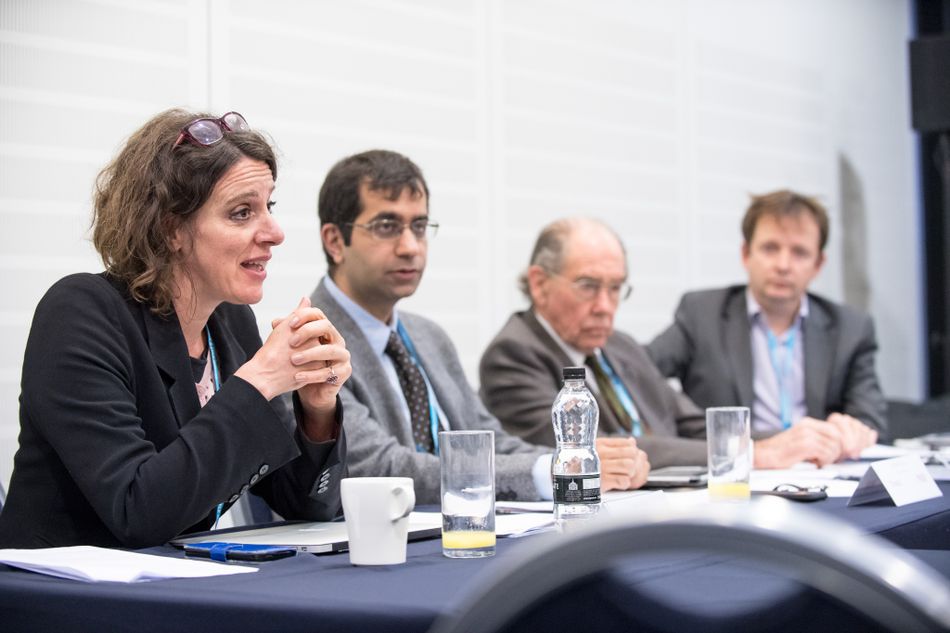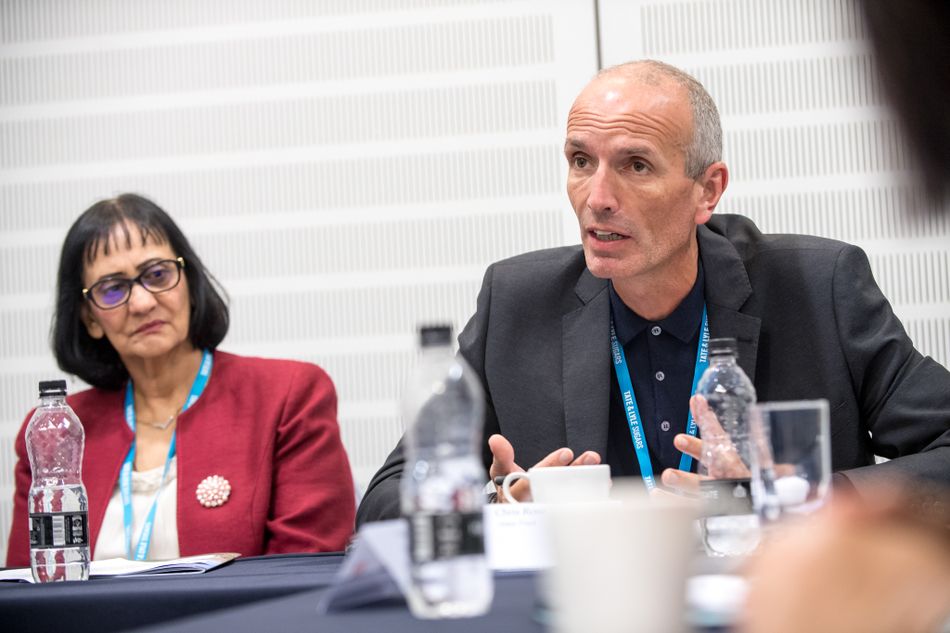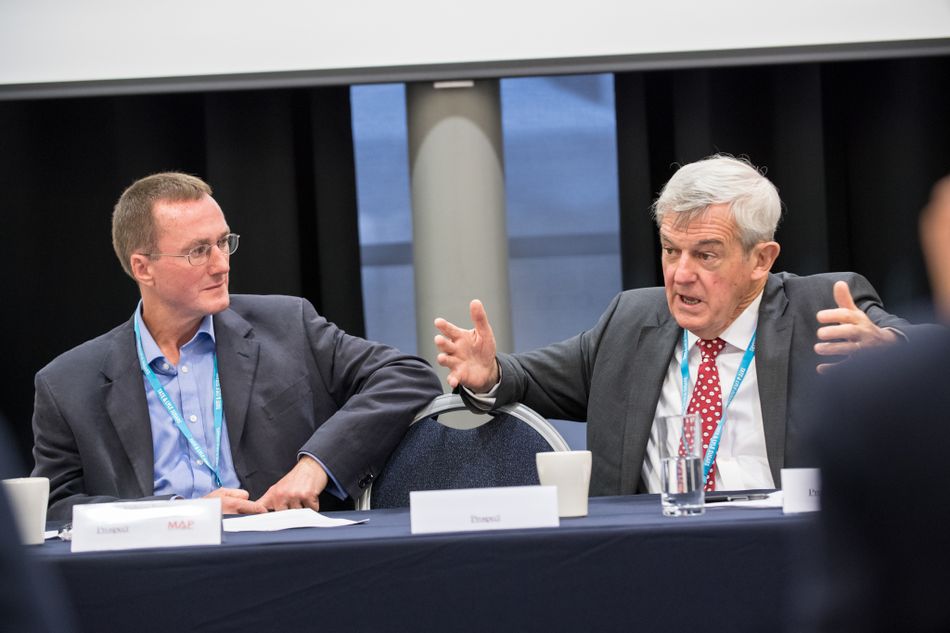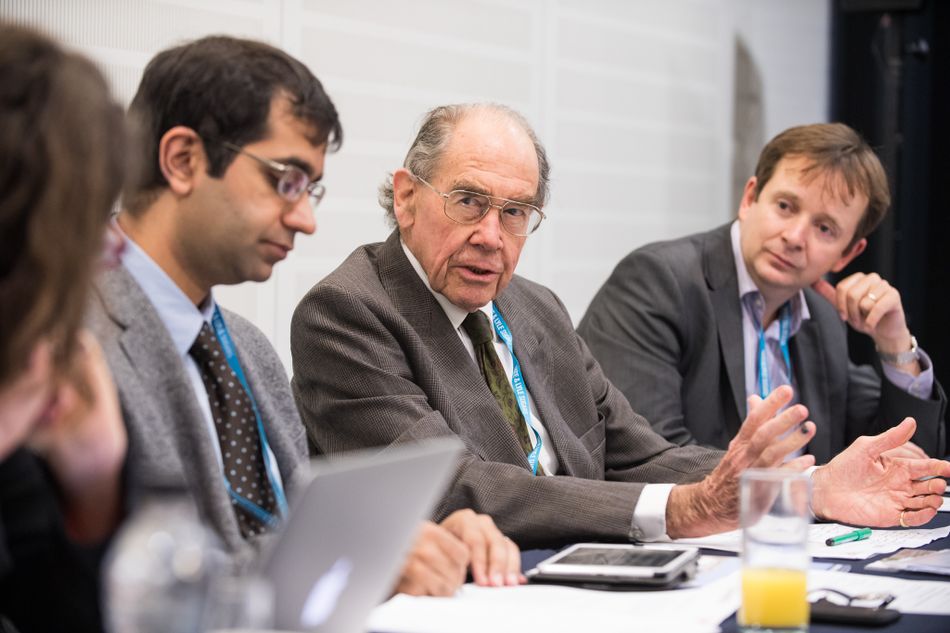Read a companion piece by Aimee Shalan 'A quiet emergency: how can the UK help save lives in Gaza?'
This years marks 100 years since the Balfour Declaration, 50 years since the Six-day war, and 10 years since the Israeli blockade of Gaza began. In that time the conflict between Israelis and Palestinians has seen many ups and downs: a peace process has begun, and then stalled. Right now, it seems, negotiations are on ice and as a result the humanitarian situation has got worse in the West Bank and especially Gaza.Prospect and Medical Aid for Palestinians (MAP) round table Discussion
At the 2017 Conservative Party Conference, Prospect and Medical Aid for Palestinians (MAP) invited a number of key experts to discuss the situation and its consequences not only for the Palestinian people, but for the chances of peace.
Dr Aimee Shalan, Chief Executive of MAP, said that she wanted to encourage an “effective, sustainable and locally-led healthcare system” in the Occupied Territories. MAP’s role, she added, was not only to get involved when there was a short-term crisis—such as the 2014 bombing of Gaza—but to also look at long-term solutions. It was all the more vital, Shalan said, that the international community addressed the key barriers to Palestinian development: military violence, restrictions on movement, attacks on healthcare facilities, Israeli demolition of homes and confiscation of Palestinian land, among other important issues. “The situation in Gaza has never been worse,” she said, and “immediate action is needed.”

Much is already being done. Sir Terence English, former President of the Royal College of Surgeons from 1989-1992, has visited Gaza numerous times with MAP. He described some of his work. Some of the most important medical projects he has been involved with include helping Gaza develop a limb reconstruction unit in al-Shifa hospital in Gaza City. They selected three orthopedic surgeons from Gaza and brought them to King’s College hospital for training. They now kept in regular contact through visits in person and video conferences. It was, he said, “a success story.”
Andrew Ferguson, Director of Programmes for MAP, outlined the difficulties facing other medical services. Both the West Bank and Gaza do not have a “developing country” health sector, as you might see in sub-Saharan Africa. So sometimes the data that comes out can be “misrepresented.” Ferguson mentioned two examples. The first was around child nutrition. It is true, Ferguson said, that there is little evidence of the kind of acute malnutrition we see in famine situations. But in 2013 a UNICEF and Ministry of Health survey showed “disturbing evidence of a much higher rate of micro-nutrient deficiencies than we had anticipated.” Ten per cent of Palestinian children are stunted—short for their age—which is a sign of malnutrition and poverty. Child mortality is 14 out of 1,000, a figure that is rising when worldwide the figures are falling.

Chris Rose, Director of the Amos Trust which has been involved with programmes for early screening for breast cancer in the Territories, said he was not as optimistic as some of the other discussion participants when it came to a purely development-led approach. The crisis we are seeing, he said, “is a direct result of the occupation.”
Chris Doyle, Director of the Council for the Advancement of Arab-British Understanding (CAABU), agreed that politics was key. But he also pointed out that the economic factor was crucial. Economic development would unlock other kinds of progress. Doyle suggested that the proposed unity agreement between the Palestinian Authority in the West Bank and Hamas in Gaza might offer some hope. The squeeze put on Hamas, including the electricity cuts instigated by the PA, might well have forced them to the negotiating table. A unity government could lead to the easing and perhaps the eventual lifting of the blockade. “It is an opportunity,” said Doyle.

Oliver McTernan, Director and Co-Founder of Forward Thinking, said Britain needed to change its attitude. Palestinian officials had told McTernan that they feel “lectured” by British officials—with the exception of the current Middle East Minister Alistair Burt, whom he described as a “breath of fresh air.”
One thorny issue was whether or not a damaging "donor economy" was being created by aid. Palestinian business-people would prefer a “loan-based economy,” said McTernan. But who is going to give “loan to a Gaza businessman when his factory might be blown up the next day?” What about the 6000-8000 supposed dual-use items banned from entry to Gaza? Should those rules be relaxed? Those are the hard questions that need asking, said McTernan.
Greater aid scrutiny, if done in the right way, would be a good idea added Aimee Shalan. It would help if more MPs were able to visit Gaza to see how the money is being spent.

Overall it was a fascinating event for those involved. It outlined the seriousness of the situation and offered constructive ways forward for those involved. What was most refreshing was the foregrounding of the human dimension of the suffering, and what people on the ground are doing about it. As Sir Terence said, “The resilience of the people is quite extraordinary.”

For speaker and partnership opportunities, please contact saskia.abdoh@prospect-magazine.co.uk.












